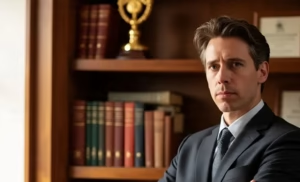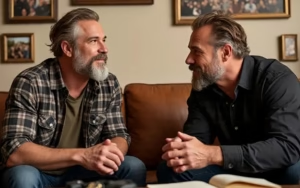Bruce Willis remains one of the most iconic and recognizable names in Hollywood history. Known for his rugged charm, signature smirk, and powerful on-screen presence, Bruce Willis carved out an unforgettable career across genres, from action-packed thrillers to heartfelt dramas and comedic gems. Today, the world watches with respect and sympathy as the legendary actor continues to live with frontotemporal dementia, a neurodegenerative disease that has slowly altered the course of his life.
The news of Bruce Willis stepping away from acting first surfaced in early 2022, when his family shared that he had been diagnosed with aphasia, a condition that affects the ability to communicate. However, in 2023, it was confirmed that his condition had evolved into frontotemporal dementia, a more severe and specific neurological disorder. Since then, fans across the world have followed his journey with admiration for his resilience and the unwavering love of his family.
Bruce Willis’ Rise to Stardom
Long before health concerns became part of the public conversation, Bruce Willis had already built a filmography that would make any actor envious. Born in 1955 in Idar-Oberstein, West Germany, and raised in New Jersey, Willis began his career on the stage before moving to television and eventually dominating the big screen.
His breakout role came in the hit television series “Moonlighting,” where his witty performance caught the attention of audiences and critics alike. But it was the 1988 blockbuster Die Hard that propelled Bruce Willis into superstardom. As John McClane, a tough New York cop battling terrorists in a Los Angeles skyscraper, Bruce Willis became the ultimate everyman action hero. That role turned into a franchise and helped define the modern action genre.
Over the next few decades, Bruce Willis appeared in a series of box office hits and critically acclaimed films. From “Pulp Fiction” and “The Sixth Sense” to “Armageddon” and “Unbreakable,” his versatility as an actor made him a favorite among directors and fans alike. He was equally comfortable delivering intense performances in thrillers or showing his comedic timing in films like “The Whole Nine Yards.”
Bruce Willis’ Health Journey: From Aphasia to Frontotemporal Dementia
In 2022, when news broke that Bruce Willis was retiring from acting due to aphasia, fans were shocked and saddened. Aphasia, often caused by brain damage or neurological disorders, severely impacts a person’s ability to speak, write, and understand language. For an actor known for his voice and delivery, this was a devastating blow.
However, the following year, his family confirmed that Bruce Willis had been diagnosed with frontotemporal dementia. This condition, while less commonly known than Alzheimer’s, is equally serious and affects the parts of the brain associated with personality, behavior, and language. It often appears in people in their 40s to 60s, making it particularly challenging for individuals and families who may not expect such a diagnosis at that stage in life.
Reports from late 2023 and 2024 indicated that Bruce Willis had become largely non-verbal. Though details about his mobility remain private, it was noted that he faces some motor difficulties. Reading has also become difficult or impossible for him. Still, despite these challenges, his family has consistently described his condition as stable as of April 2025.
Family as a Pillar of Strength
Throughout this difficult journey, the strength of Bruce Willis’ family has been nothing short of remarkable. His wife Emma Heming Willis, along with his ex-wife Demi Moore and their blended family, have been transparent with the public while fiercely protecting his dignity and well-being.
They’ve shared updates with sensitivity, making it clear that while Bruce Willis is no longer able to engage with the world as he once did, he remains surrounded by love and support. Their openness has been a source of education and inspiration, raising awareness about frontotemporal dementia and the importance of compassion in the face of neurodegenerative diseases.
His daughters, especially Rumer and Scout, have occasionally spoken about how this journey has impacted them personally. The family continues to advocate for patience, understanding, and a shift in how society views cognitive illnesses. Their courage in confronting the situation publicly has led to a wider cultural understanding of what families dealing with such diagnoses face every day.
Bruce Willis’ Legacy in Film and Pop Culture
Even as he steps away from the limelight, the legacy of Bruce Willis remains more vibrant than ever. His films continue to entertain and inspire new generations of viewers. Streaming platforms and television reruns ensure that audiences will never forget the grit and charisma he brought to the screen.
The Die Hard franchise alone solidified his place in cinematic history, but his performances in psychological thrillers and dramas proved that he was much more than just an action star. In “The Sixth Sense,” his haunting portrayal of Dr. Malcolm Crowe remains one of his most critically acclaimed roles. His collaboration with director M Night Shyamalan further showcased his ability to bring nuance and emotion to his characters.
In films like “Tears of the Sun” and “16 Blocks,” Bruce Willis explored more morally complex roles, showing a maturity and depth that reflected his evolution as an actor. Even in ensemble pieces like “Red” or the “Expendables” series, his presence elevated the entire cast.
Beyond movies, Bruce Willis became a part of the American cultural fabric. His appearances on talk shows, commercials, and even Saturday Night Live made him a household name. His humor, charm, and willingness to laugh at himself endeared him to fans everywhere.
A Symbol of Strength and Resilience
The story of Bruce Willis today is not just one of fame and film success. It’s about strength in vulnerability. His diagnosis, though heartbreaking, has humanized a larger-than-life figure. Fans who once watched him take down villains on-screen now send him words of love and encouragement in real life.
What makes Bruce Willis stand out in the public’s heart is not just his acting career but how he and his family are facing the realities of aging, illness, and change with grace. It’s a reminder that celebrities, no matter how successful, are still human beings deserving of empathy and respect.
Frontotemporal dementia, while rare, affects thousands of people globally. Bruce Willis’ case has shone a spotlight on the condition, prompting conversations about early diagnosis, caregiving challenges, and the emotional toll it takes on loved ones. His journey has brought visibility to a disease that often goes unnoticed until it deeply affects families.
The Global Support for Bruce Willis
As of mid-2025, the outpouring of global support for Bruce Willis has not slowed down. Fans continue to share their favorite memories and clips, keeping his spirit alive across social media platforms. Movie marathons, tributes, and online communities have all emerged to celebrate his legacy.
Several fellow actors and celebrities have also expressed admiration and support, recalling personal stories and praising his professionalism and kindness behind the scenes. These testimonials paint a picture of a man who was not only a giant on-screen but also deeply respected by his peers.
While his family continues to manage his care privately, they also occasionally express appreciation for the love that fans continue to send. These acts of kindness and remembrance are a testament to the impact Bruce Willis has had on the world through both his art and his personal strength.
A Continuing Presence in Our Lives
Though he may no longer be performing, Bruce Willis is still very much a presence in popular culture. His voice, face, and the many characters he brought to life remain part of our shared cinematic memory. From the streets of Nakatomi Plaza to the quiet moments in “The Sixth Sense,” his work has helped define what it means to be a true Hollywood legend.
As more people learn about frontotemporal dementia, they do so through the lens of someone they admire. That, in itself, is a powerful form of advocacy. And as his family continues to share updates and memories, fans across generations stay connected to the story of Bruce Willis, not just the actor, but the person.
There is a unique kind of courage in facing illness so publicly, and Bruce Willis has shown the world what it means to do so with dignity. His name, his legacy, and his strength will remain forever etched in the hearts of those who grew up watching his films and those now learning about the man behind the screen.



